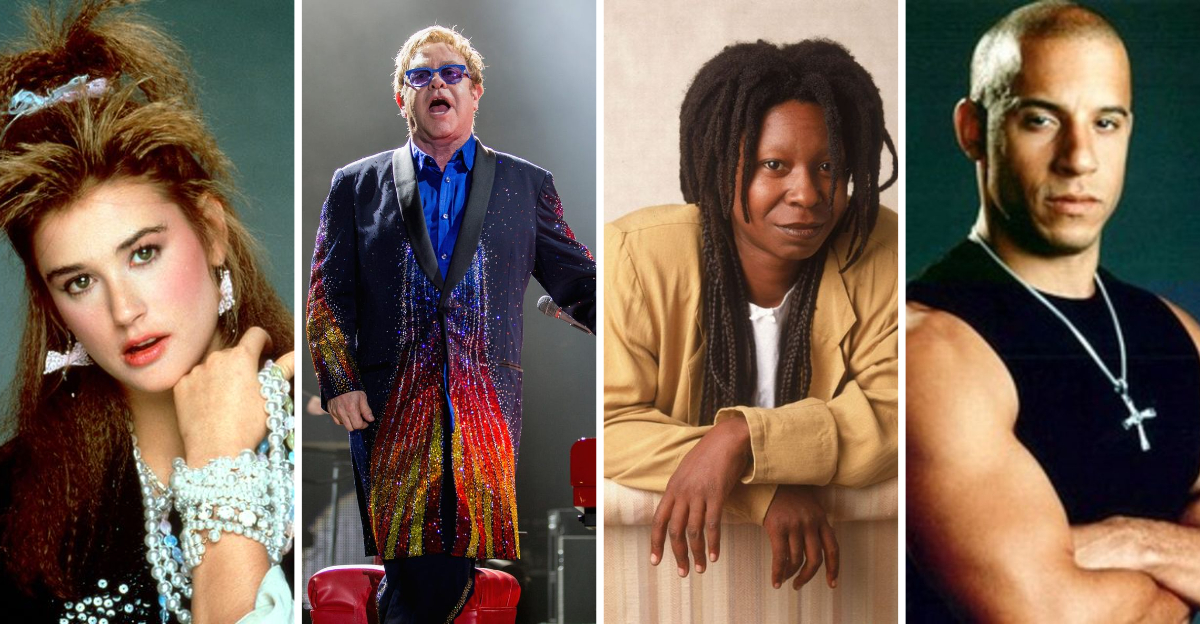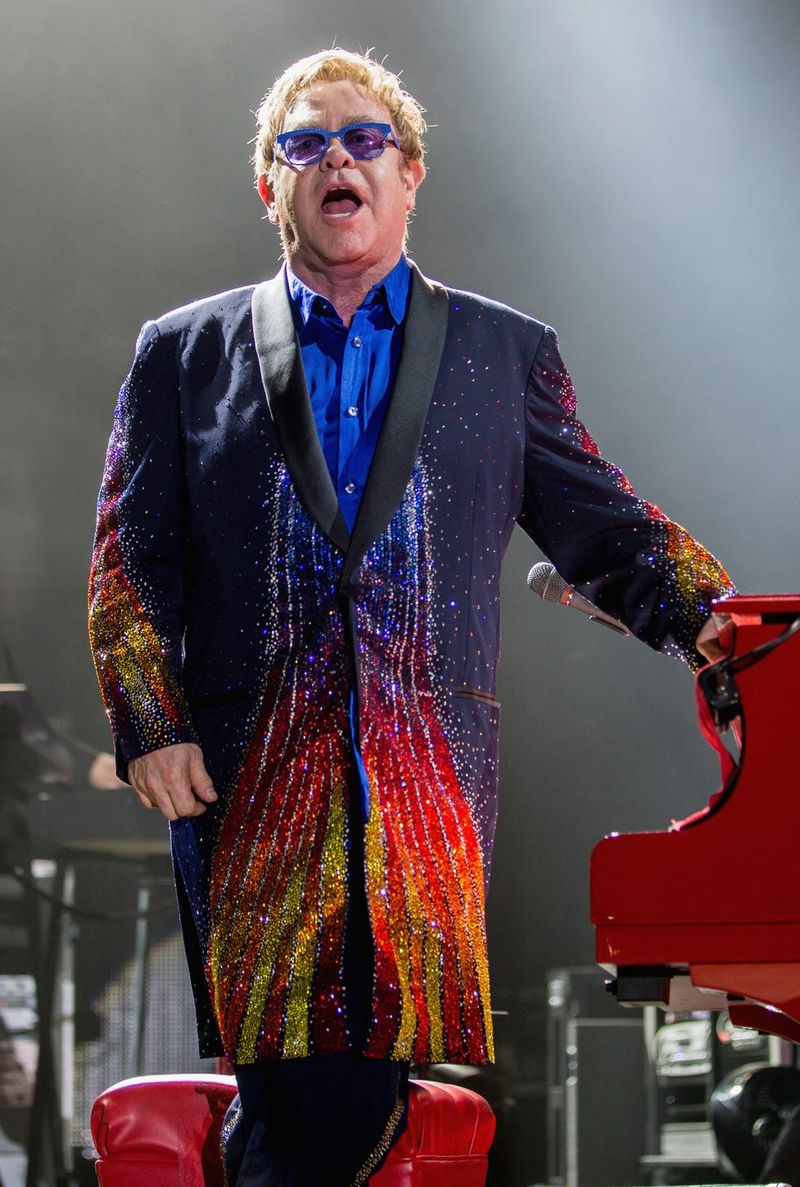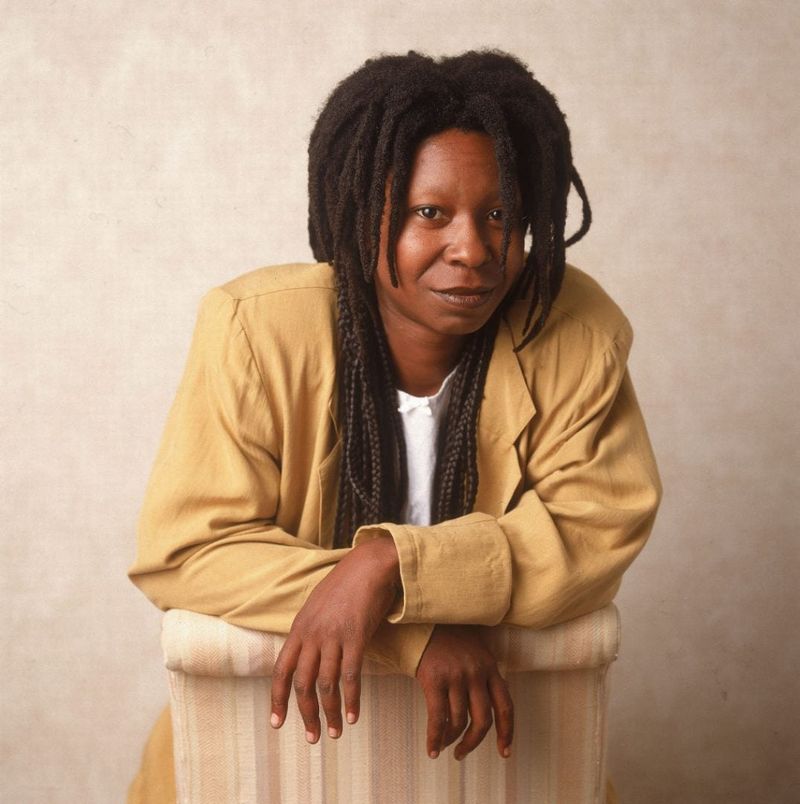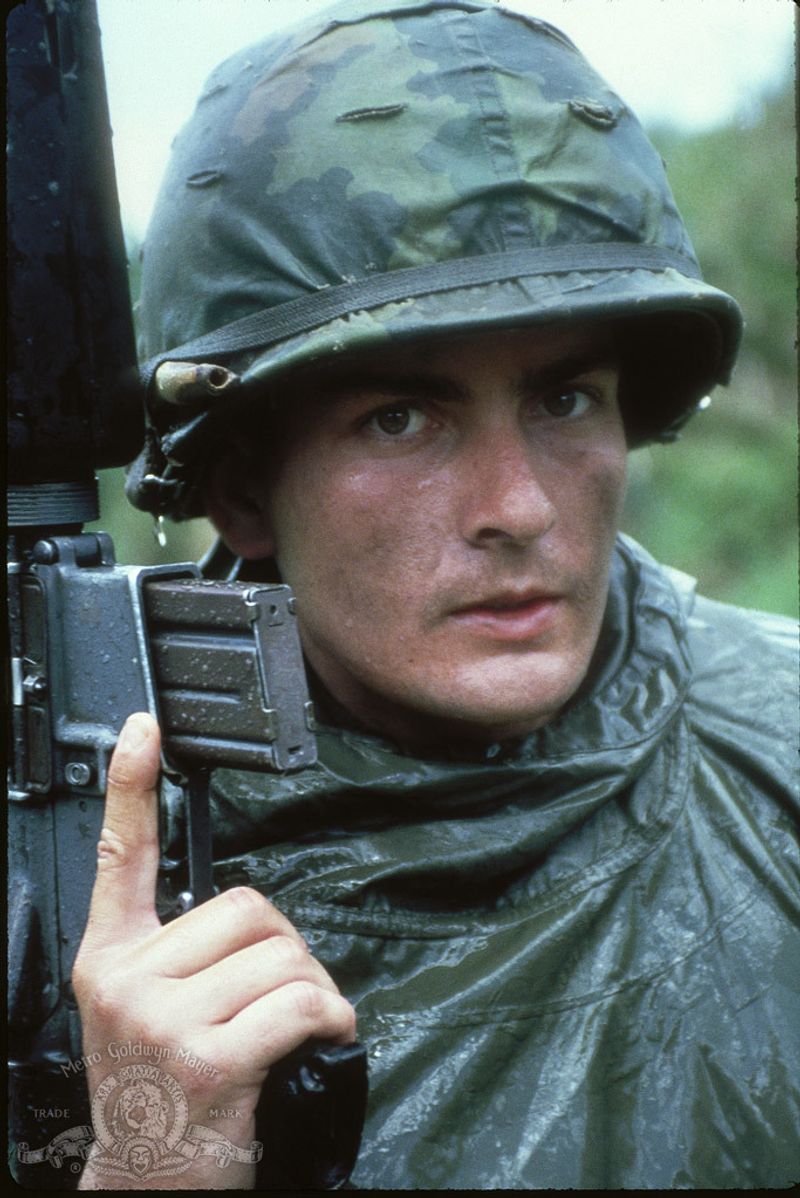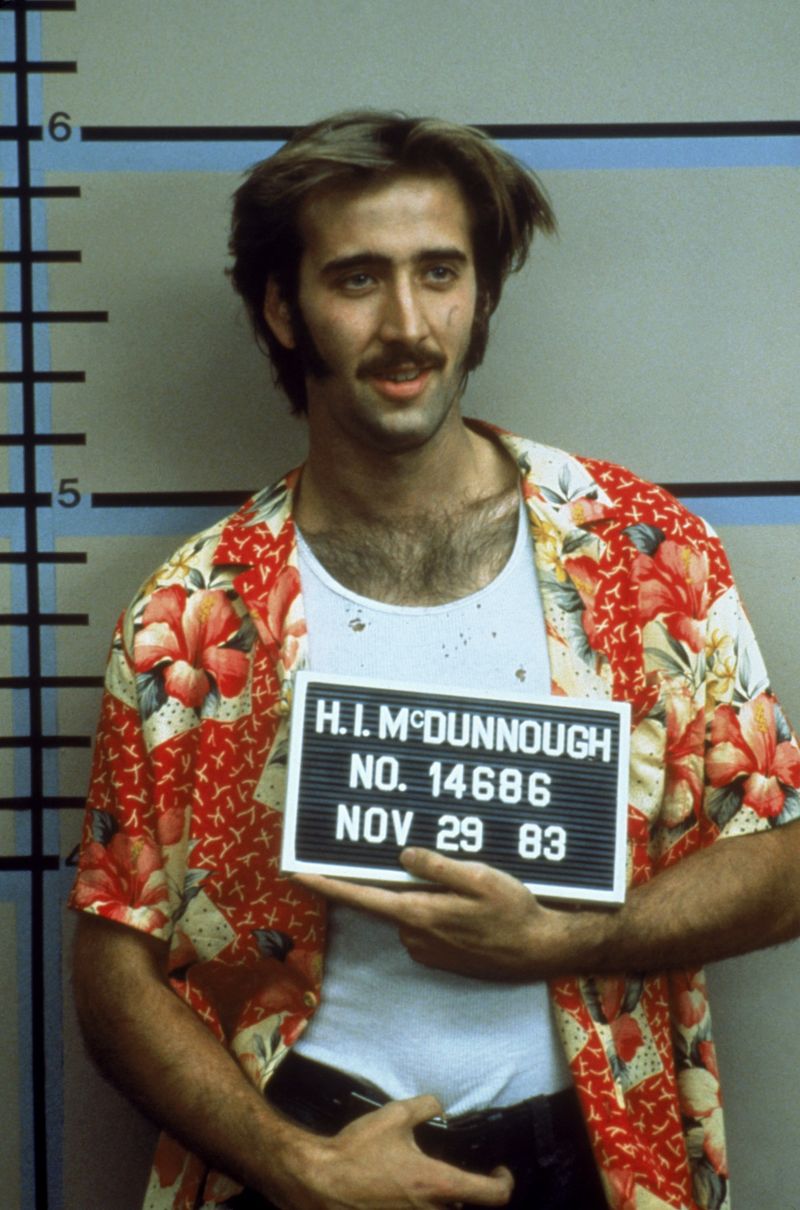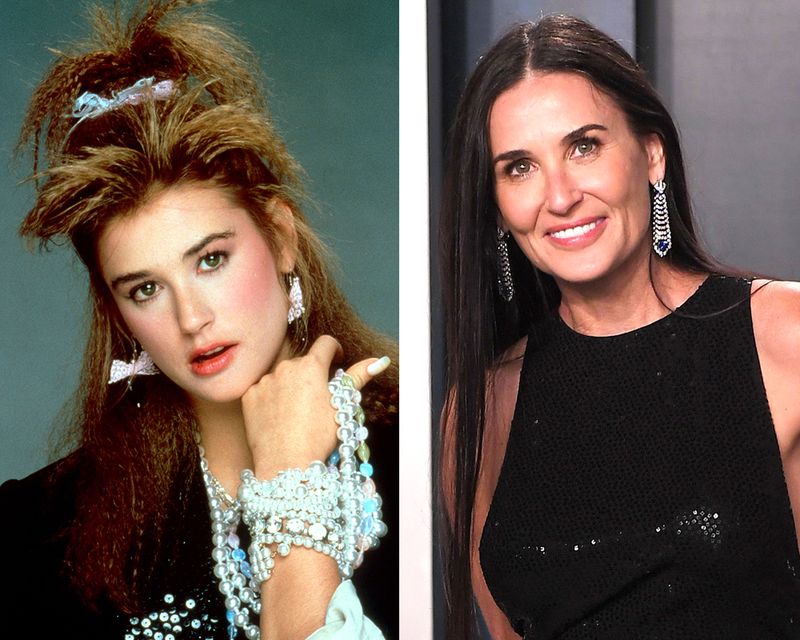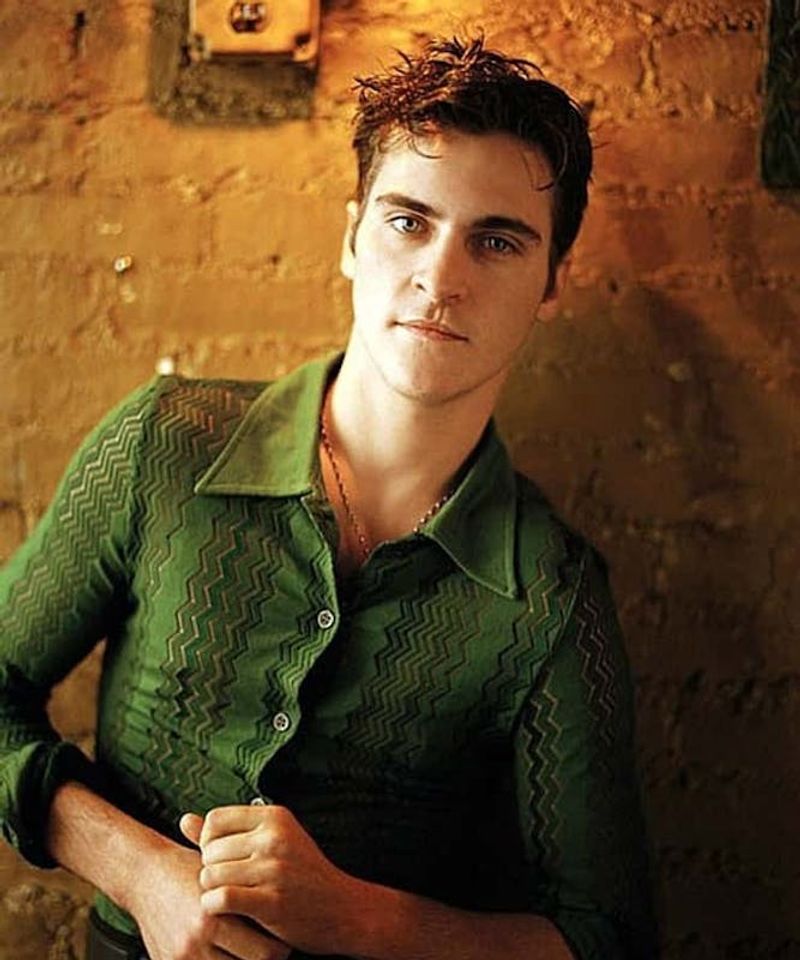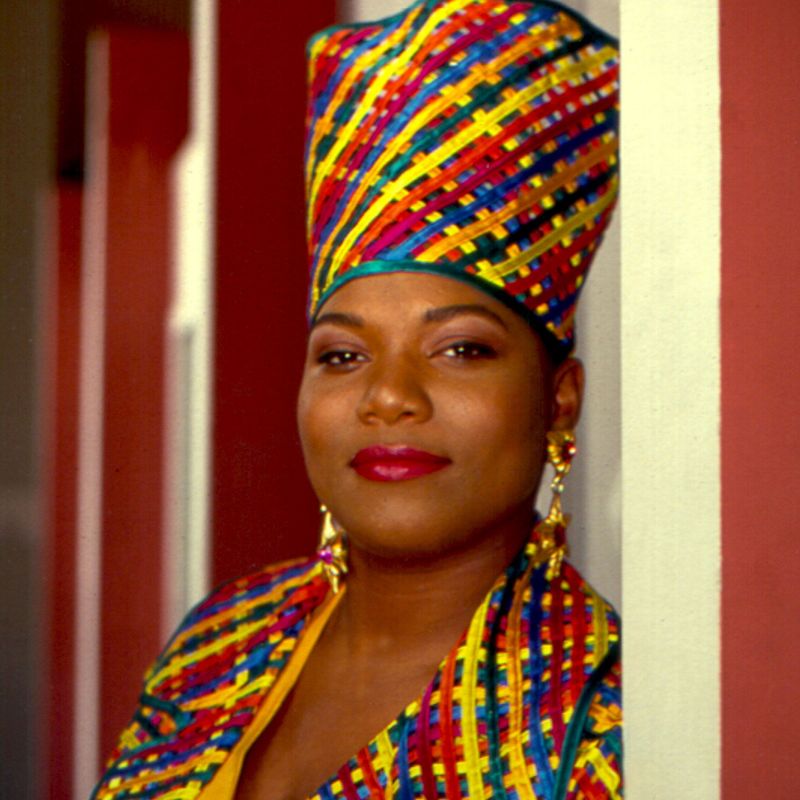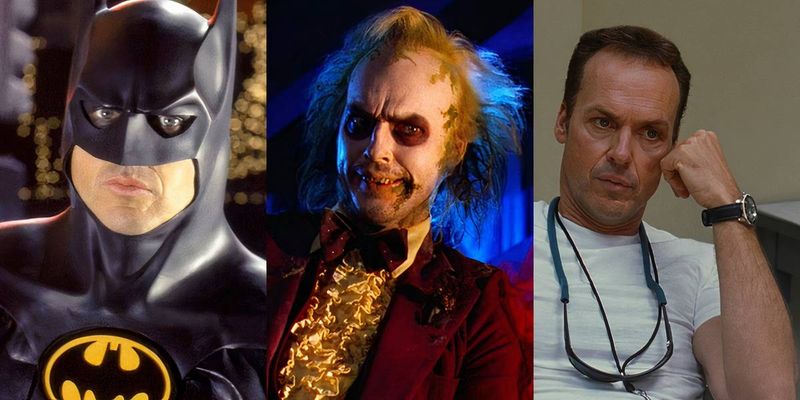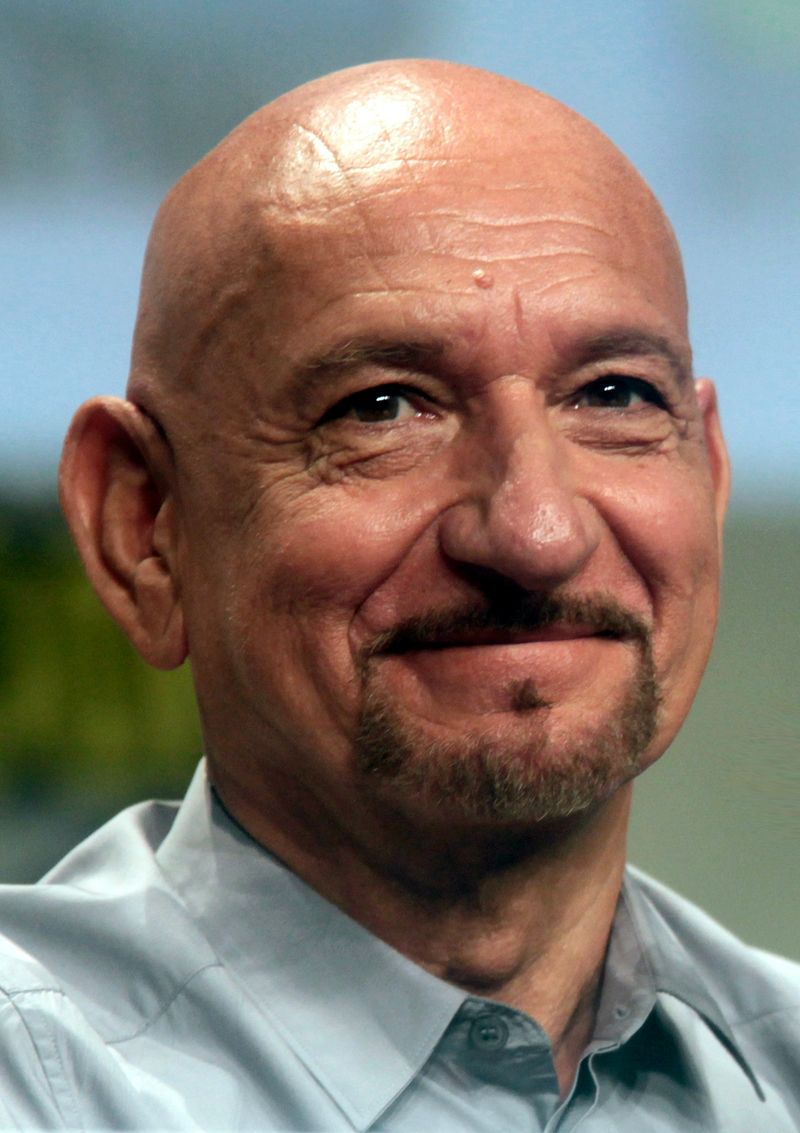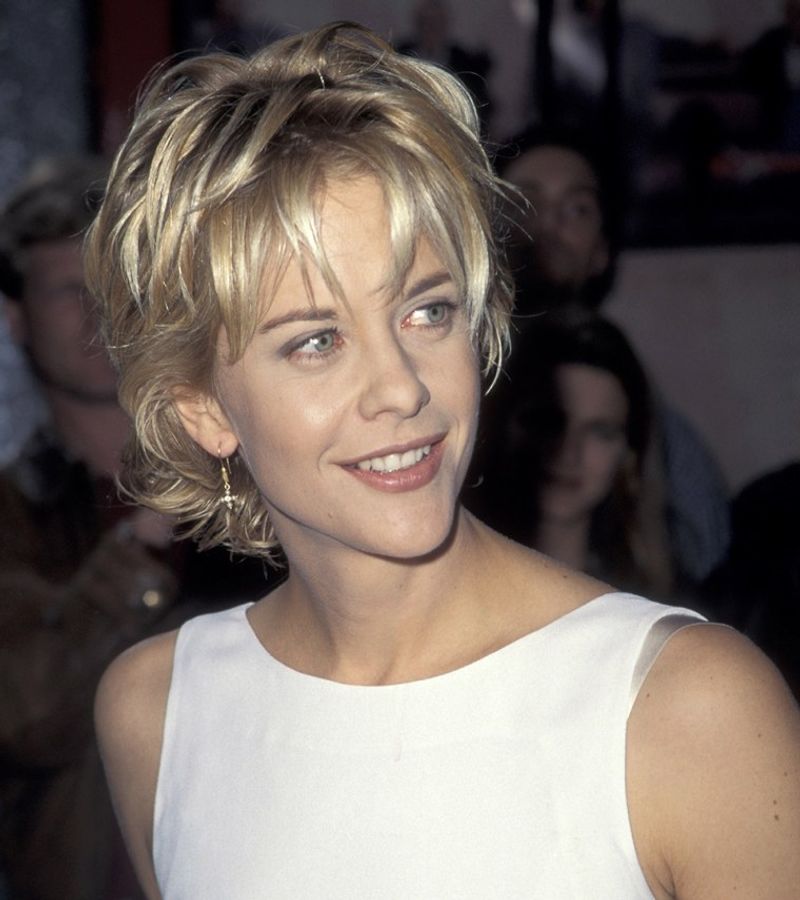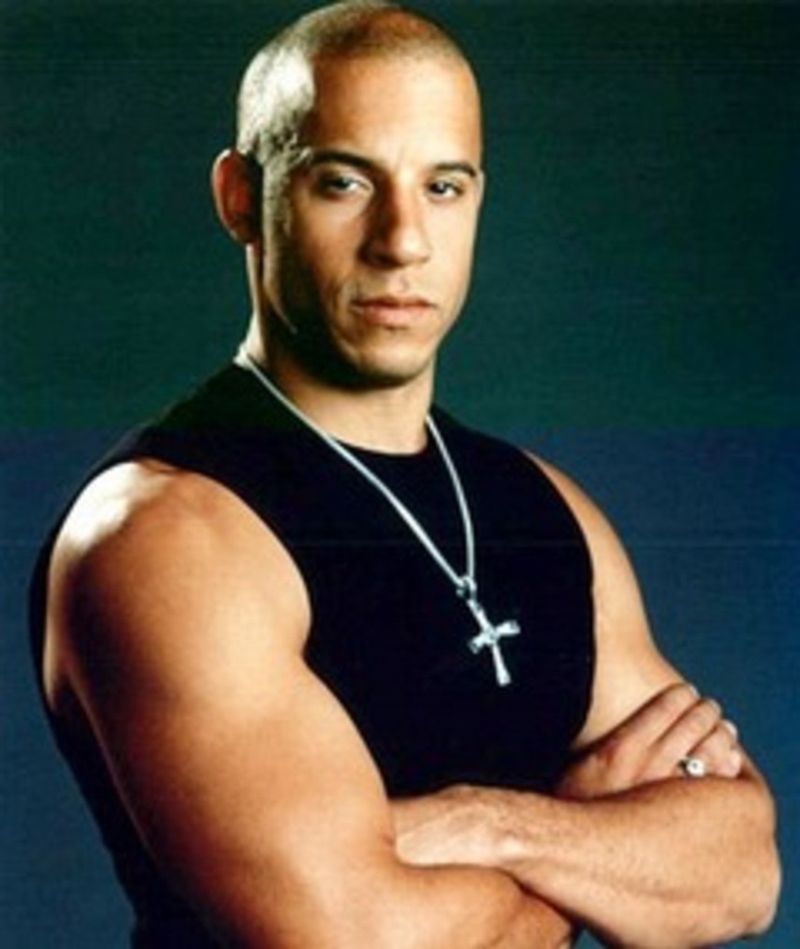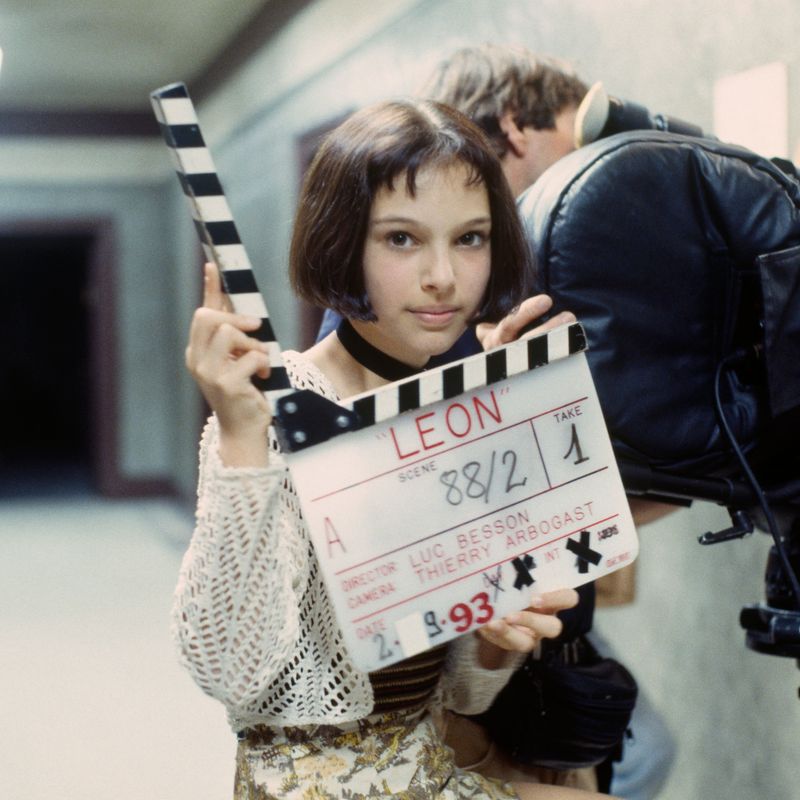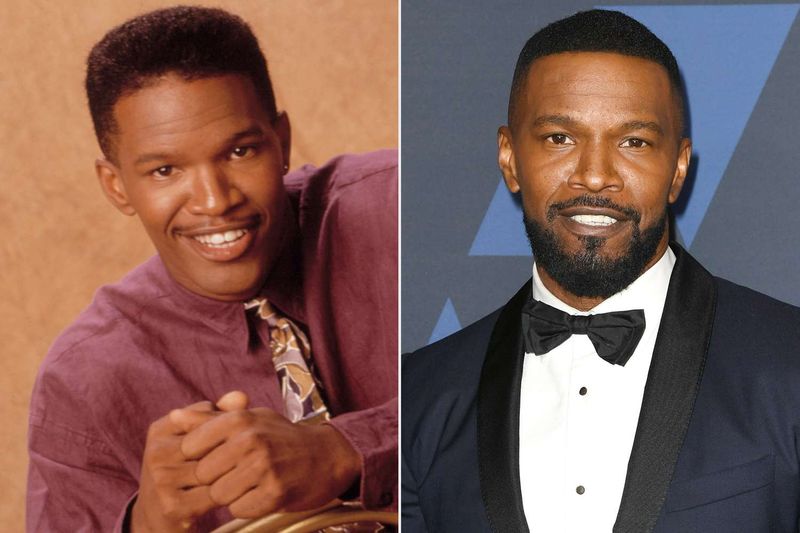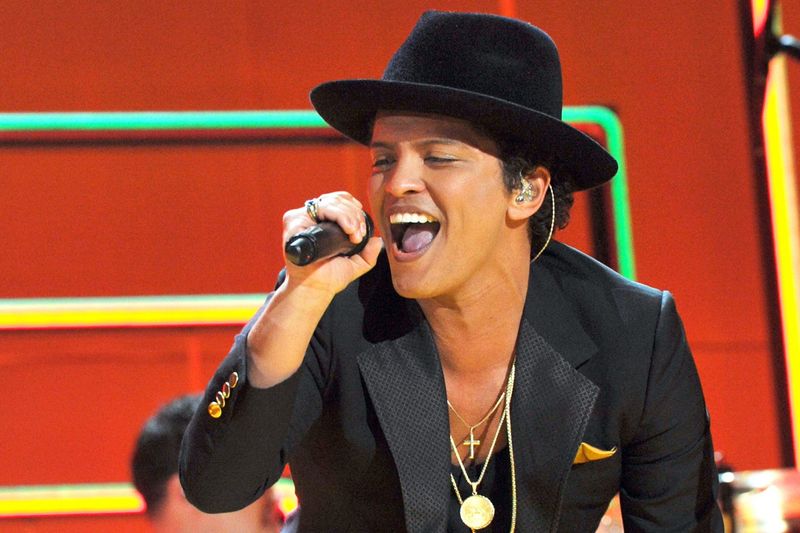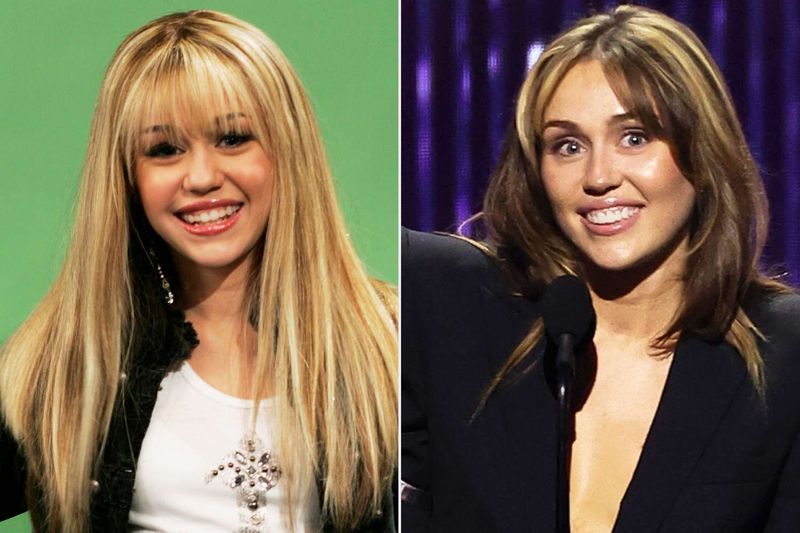The 1980s catapulted countless stars to worldwide fame, but fame sometimes demands reinvention. For many celebrities, this transformation included adopting entirely new names to reshape their public image or break free from typecasting. These name changes weren’t just paperwork—they represented fresh identities that would carry these stars into new phases of their careers and lives.
1. Elton John’s Royal Rebrand
Born Reginald Kenneth Dwight, the piano virtuoso crafted his stage name by combining the names of saxophonist Elton Dean and blues singer Long John Baldry. Though already performing as Elton John in the ’70s, his ’80s superstardom cemented this musical alter ego. The transformation allowed him to separate his shy personal self from his flamboyant stage persona. His birth name simply couldn’t contain the sequined, platform-heeled icon he became.
2. Whoopi Goldberg’s Comedic Identity
Caryn Elaine Johnson transformed herself into Whoopi Goldberg with a name inspired by—believe it or not—a whoopee cushion. Her family noted her flatulence resembled the novelty toy, earning her the unusual nickname. She selected “Goldberg” believing a Jewish-sounding surname might advance her Hollywood career. Following her breakout in 1985’s “The Color Purple,” the name became synonymous with her fearless comedy and acting style.
3. Charlie Sheen’s Cultural Compromise
Carlos Irwin Estévez became Charlie Sheen early in his career, anglicizing his Hispanic name to avoid typecasting in Hollywood’s limiting landscape. His father, Martin Sheen (born Ramón Estévez), had made the same difficult choice decades earlier. The name change paid off professionally with ’80s hits like “Platoon” and “Wall Street.” Years later, he briefly reclaimed his birth name for “Machete Kills,” acknowledging his heritage with pride.
4. Nicolas Cage’s Superhero Inspiration
The nephew of legendary director Francis Ford Coppola, Nicolas Kim Coppola feared the weight of family connections would overshadow his own talent. His solution? Borrowing “Cage” from Marvel Comics character Luke Cage. The name change wasn’t just about avoiding nepotism accusations—it represented artistic independence. His eccentric performances in ’80s cult classics like “Raising Arizona” established Cage as a singular talent far removed from his famous surname.
5. Demi Moore’s Streamlined Stardom
Rising from the Brat Pack ranks, Demi Gene Guynes simplified her professional identity by adopting her first husband Freddy Moore’s surname. The change coincided with her transformation from soap opera actress to silver screen siren. After “St. Elmo’s Fire” (1985) launched her into the stratosphere, the sleek, powerful “Demi Moore” became her permanent identity. Even through subsequent marriages to Bruce Willis and Ashton Kutcher, she maintained this professional moniker.
6. Joaquin Phoenix’s Family Rebirth
The Phoenix family’s name change wasn’t just professional—it was deeply personal. Born Joaquin Rafael Bottom, his parents changed the family surname after leaving a religious cult, symbolizing their rebirth. Strangely, young Joaquin temporarily went by “Leaf” during his early ’80s acting career. The unusual botanical name stuck until 1989’s “Parenthood,” when he reclaimed “Joaquin.” Few realize the Oscar winner once answered to a completely different moniker during his child actor days.
7. Queen Latifah’s Regal Reinvention
Dana Owens crowned herself “Latifah” (Arabic for “delicate”) as a teenager, adding “Queen” when signing her first record deal. The regal moniker perfectly captured her commanding presence in hip-hop’s male-dominated world. Her self-bestowed title wasn’t mere vanity—it represented the dignity and respect she demanded in an industry that often marginalized women. By the late ’80s, her powerful stage name had become a declaration of artistic sovereignty.
8. Michael Keaton’s Accidental Duplicate
Born Michael Douglas, the future Batman star faced an unexpected roadblock—another famous Michael Douglas already dominated Hollywood. Rather than compete for name recognition, he randomly selected “Keaton” from a phone book. The name change proved fortuitous. As “Beetlejuice” (1988) and later “Batman” (1989) catapulted him to superstardom, “Michael Keaton” became synonymous with his uniquely manic energy and versatile acting style.
9. Ben Kingsley’s Career Calculation
Krishna Bhanji made a calculated decision to anglicize his name before his breakthrough in “Gandhi” (1982). Combining his father’s nickname “Ben” with his grandfather’s “Kingsley,” he created an identity he believed would face less discrimination in British theater. The transformation paid off spectacularly. His Academy Award-winning performance transcended cultural boundaries, though he later expressed regret about abandoning his birth name. His stage name remains a reminder of the compromises many actors of color made.
10. Meg Ryan’s Romantic Simplification
Margaret Mary Emily Anne Hyra—a mouthful by any standard—transformed into the perkier, more marquee-friendly “Meg Ryan” as her star ascended. She borrowed her maternal grandmother’s maiden name, creating a breezy identity perfect for America’s sweetheart. The timing proved impeccable. As the ’80s gave way to her rom-com reign in films like “When Harry Met Sally,” her simplified name became synonymous with romantic optimism and that famous deli scene.
11. Vin Diesel’s Powerhouse Persona
Before Fast & Furious fame, Mark Sinclair worked as a New York City bouncer where colleagues dubbed him “Diesel” for his relentless energy. He added “Vin” from his stepfather’s surname, Vincent, creating a name as muscular as his physique. Though his major breakthrough came after the ’80s, the foundation for his action hero persona was laid during this decade. The industrially-inspired name perfectly captured the raw power he would later bring to the screen.
12. Natalie Portman’s Privacy Protection
Born Natalie Hershlag, the future Oscar winner adopted her grandmother’s maiden name after her 1994 debut in “Léon: The Professional.” Though her major fame came post-’80s, the groundwork for her career was laid during that decade. Unlike many celebrity name changes, Portman’s wasn’t about marketability—it was about protection. The young actress sought to shield her family from public scrutiny, creating separation between her professional and private identities.
13. Jamie Foxx’s Strategic Switch
Eric Marlon Bishop’s name change was pure strategy. Noticing that female comedians often got called first at open mics, he chose the gender-ambiguous “Jamie.” He added “Foxx” as homage to comedian Redd Foxx. The clever rebrand worked brilliantly. By the time he joined “In Living Color” in 1991, his new identity was firmly established. His calculated name choice reflected the sharp wit that would later earn him an Oscar.
14. Bruno Mars’ Celestial Rebrand
Though his major fame came decades after the ’80s, Peter Gene Hernandez crafted his stellar stage name to avoid being pigeonholed as a Latin artist. “Bruno” came from his chubby baby resemblance to wrestler Bruno Sammartino. “Mars” represented his out-of-this-world musical ambitions. The astronomical surname perfectly matched the interplanetary talent who would later dominate charts with his genre-blending sound. His father’s ’80s musical career in Hawaii laid the foundation for his son’s future stardom.
15. Miley Cyrus’ Nickname Normalization
Though her own fame came well after the ’80s, Miley Cyrus’ name change connects to that era through her father, ’80s country star Billy Ray Cyrus. Born Destiny Hope Cyrus, her perpetual infant smile earned her the nickname “Smiley,” later shortened to “Miley.” The childhood nickname stuck so thoroughly that she legally adopted it in 2008. What began as a family endearment transformed into one of pop culture’s most recognizable monikers.
